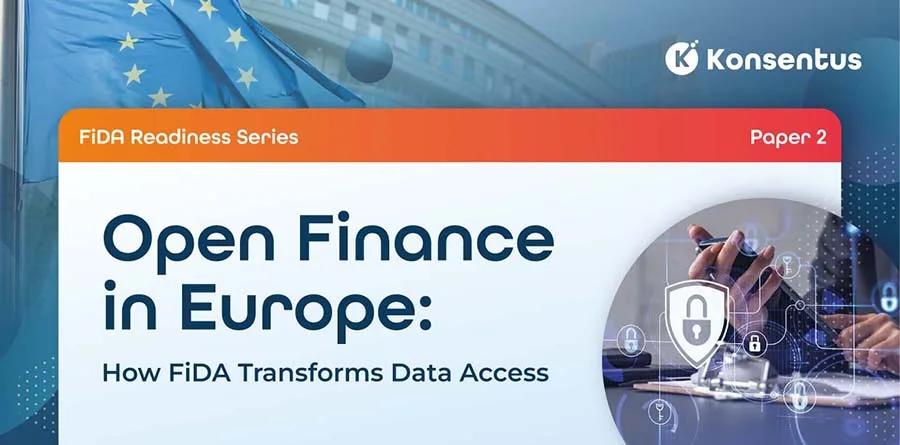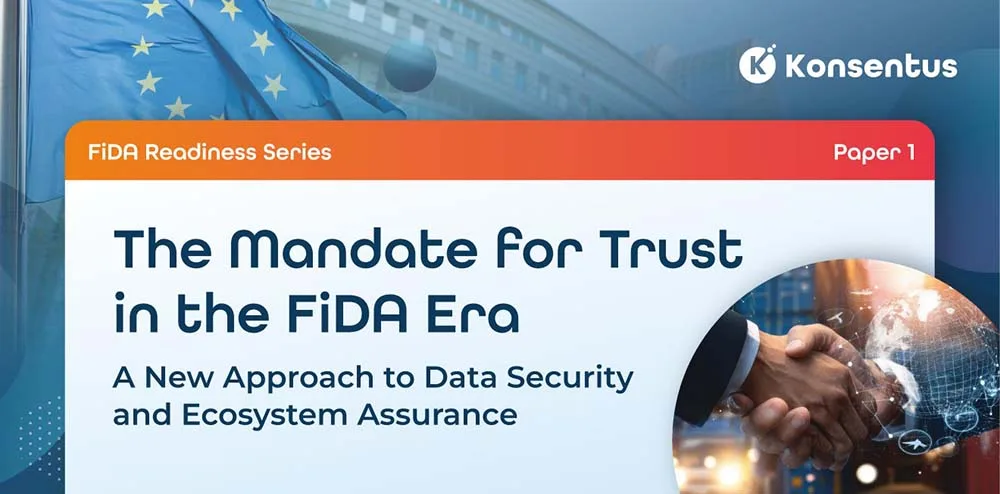The EU’s proposed Framework for Financial Data Access (FiDA) is meant to be the cornerstone of open finance in Europe, expanding beyond payments to give consumers control over a much wider set of financial data, from savings and credit to investments, pensions and insurance.
The European Commission set out its vision in June 2023, describing a framework where, with a customer’s consent, banks and other financial institutions would have to make relevant financial data accessible to accredited third parties via organised data-sharing schemes. The proposal, available on EUR-Lex (COM/2023/360), also introduced customer dashboards to manage permissions and built on the experience of PSD2.
Since then, the file has progressed but not yet landed. The Council of the European Union adopted its general approach in December 2024, backing the principle of open finance but pushing for more flexibility and a phased introduction. The European Parliament has developed its position and trilogue negotiations between the institutions are underway, but agreement, originally expected in autumn 2025, now looks likely to slip toward December, or maybe even into the New Year.
That delay is prompting questions across the banking sector: does a slower political process create instability and what happens if no deal is reached by year-end?
A legislative delay, not a policy reversal
The first point to make is that this is not a repeat of the years of indecision that sometimes plague EU files. All three policy-making institutions have publicly endorsed the principle of customer-controlled data sharing. The current discussions are about “how” and “how fast” to deliver it, not whether it should happen at all.
That pragmatic tone suggests the file will survive a missed December deadline. For banks, this means FiDA is unlikely to disappear; it will simply evolve more slowly.
However there have been recent positive developments for Europe’s financial sector. The Financial Data Access Regulation (FiDA) has now been formally included in the EU’s 2026 Work Programme.
This inclusion reinforces that Open Finance remains a central strategic priority for the European Union. Although the regulation is still listed as “pending”, its trajectory is clear: data-driven finance is on the way, poised to transform how financial institutions operate, innovate and collaborate across the continent.
The practical impact for banks
A delay does not create the kind of financial-system instability associated with prudential risks or liquidity concerns. FiDA is not about balance-sheet soundness. Its effects are more operational and strategic.
Banks face uncertainty on three fronts: scope, sequencing and competition. The first concerns which data types will be included in the initial implementation wave. If insurance, investments or pensions are pushed to later phases, the business case for early technology investment changes. The second is sequencing, since many banks hoped to align FiDA obligations with those under the new Payment Services Regulation (PSR) and PSD3; a delay risks two separate upgrade cycles rather than one coordinated effort. Finally, competitive dynamics may shift if open finance access rules are tightened for large digital platforms, an issue still being discussed.
In other words, while markets are stable, planning becomes more difficult. Boards and programme managers may pause or reprioritise projects until they have a clear legislative text, which can freeze investment decisions and partnerships.
If there’s no agreement in December
Should trilogues fail to conclude before year-end, the file would remain active in 2026. It would not lapse, but the likely consequence is further dilution and delay. Implementation dates could move to 2028 or beyond and the first binding obligations might be limited to core retail banking products.
The greater risk lies in fragmentation. With the EU-level framework in limbo, some member states may press ahead with national initiatives or regulatory sandboxes, creating a patchwork of standards similar to PSD2. For cross-border banks, that would mean managing multiple regimes rather than a single harmonised one; precisely what FiDA aims to avoid.
This is why many in the industry, including national banking federations, have quietly urged negotiators to secure political agreement in December, even if the technical detail is finalised later. The goal is to give the market a clear direction of travel.
How banks can prepare despite uncertainty
Even in the absence of final rules, certain preparatory work is safe and worthwhile. Every institutional text so far confirms that data holders will need a clear inventory of customer financial data, the ability to share it securely and a customer interface to manage permissions. Banks can therefore start with internal data-mapping exercises, the design of consent dashboards and early engagement with potential data-sharing schemes to understand governance and liability models.
Investing in API-first architectures, audit trails and identity management also aligns with broader digital and regulatory objectives including the PSR, the Digital Operational Resilience Act (DORA) and the EU Data Act. These steps are unlikely to be wasted regardless of how FiDA’s details evolve.
A delay worth watching, not fearing
For banks, the delay in FiDA’s finalisation is less a crisis than a pause; one that extends uncertainty, but not one that undermines stability. The direction of travel is clear: customer-centric data sharing, scheme-based governance and interoperability across financial sectors.
The policy makers still appear committed to that vision. If December brings at least a provisional agreement, banks will finally have the clarity they need to plan investment and compliance work with confidence. If not, 2026 may bring further simplification and a longer runway – but not a change of destination.
Key official sources:
- European Commission Proposal for a Regulation on a Framework for Financial Data Access (COM/2023/360)
- Council of the European Union: Press release, 4 December 2024 – “Council agrees to make consumers’ financial data more accessible”
- European Parliament Legislative Train – “New open finance framework (FiDA)”





